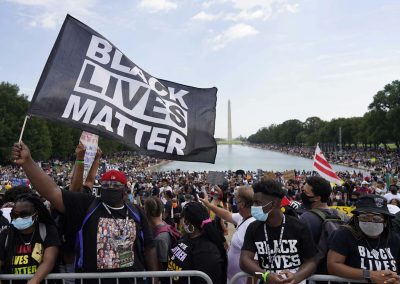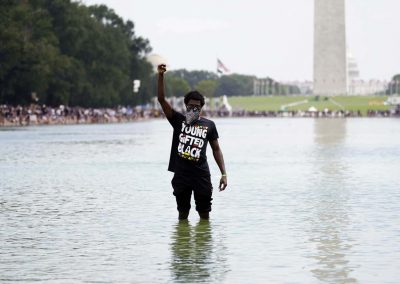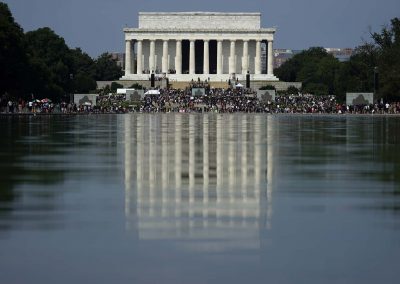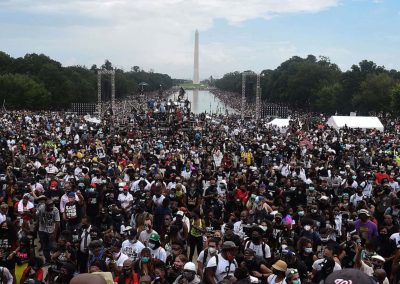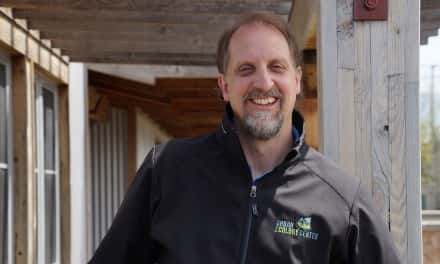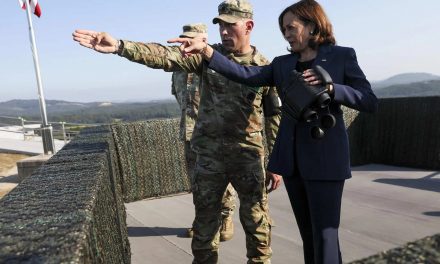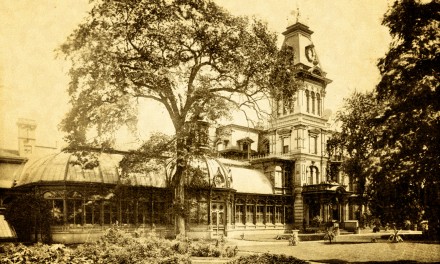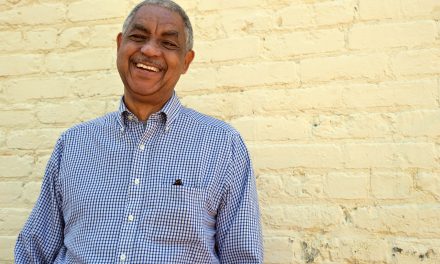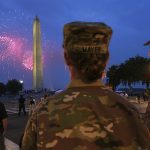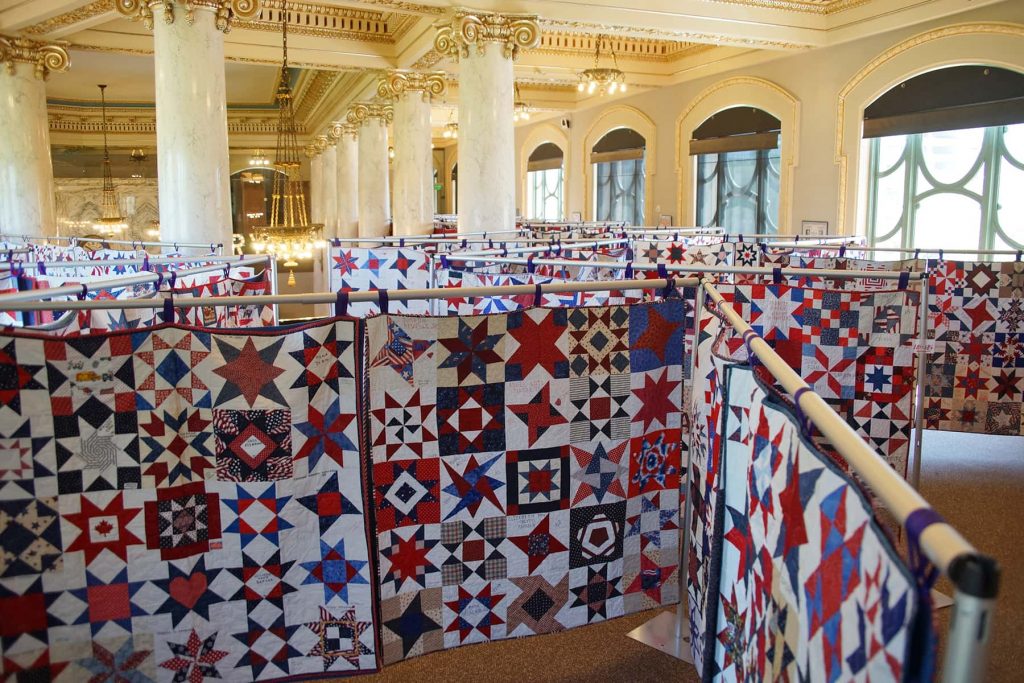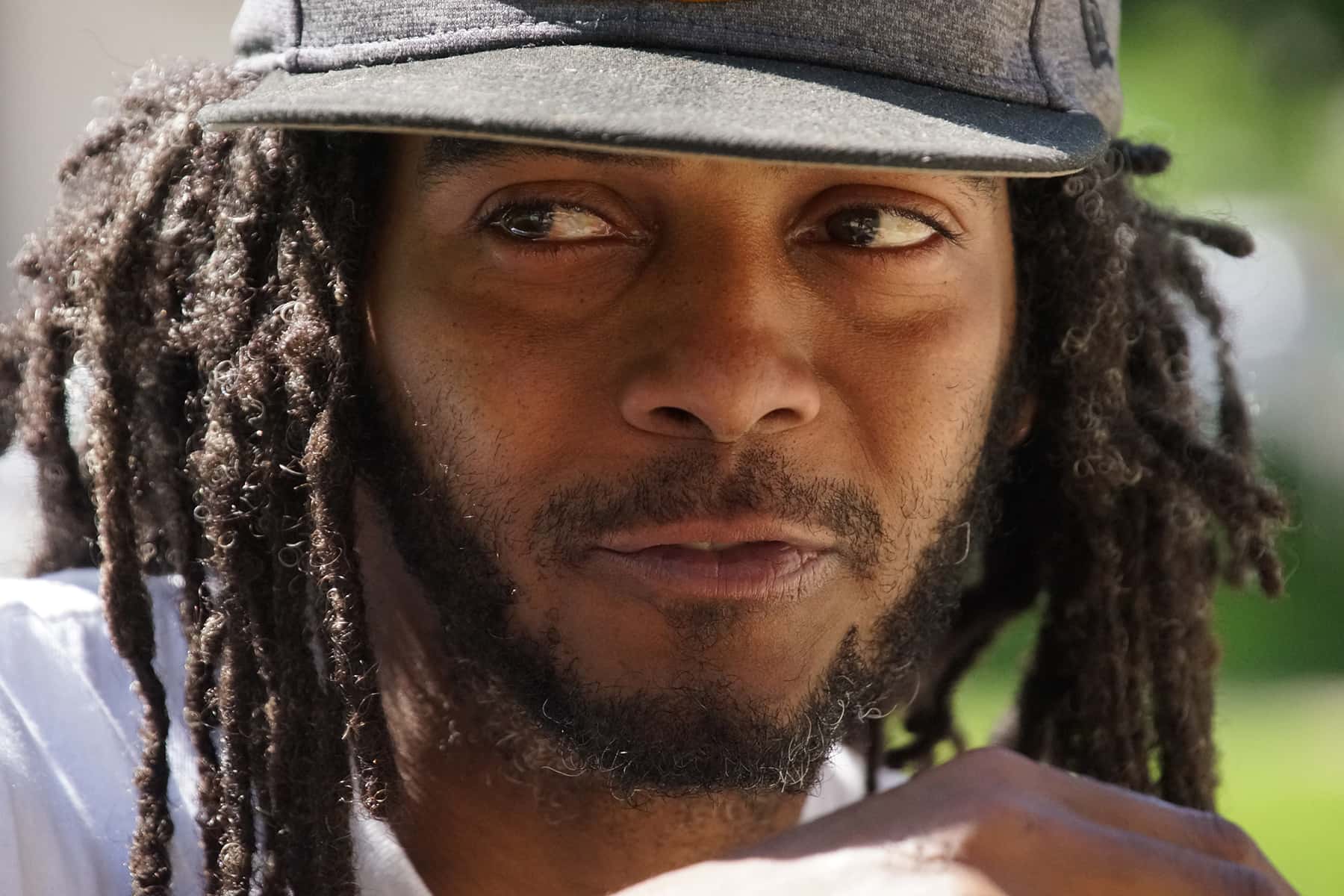
An estimated 50,000 people attended the “Get Your Knee Off Our Necks” March in Washington, DC on Friday, August 27, including Maria Hamilton, mother of Dontre Hamilton; Jose Acevedo, father of Joel Acevedo; Sedan Smith, brother of Sylville Smith, and other advocates representing Milwaukee.
Individuals and community groups from all over the country gathered to mark the 57th anniversary of Dr. Martin Luther King, Jr.’s speech, delivered on August 28, 1963 at the March on Washington. The collection of featured speakers all reaffirmed their commit to fighting for meaningful criminal justice reform. MLK’s son also issued a sobering reminder about the persistence of police brutality and racist violence that continued to target Black Americans.
“August 28 is a day to remember the triumphs and tragedies that have taken place in our historic struggle for racial justice… But, the progress we celebrated is imperiled yet again. Now we must march to the ballot box and the mailboxes, to defend the freedom that earlier generations worked so hard to win,” said Martin Luther King III. “My father said, ‘In the end, we will remember not the words of our enemies, but the silence of our friends.’ Now is the time for all Americans to stand with Black Americans in the face of injustice, to demand that America meet her promise of liberty and justice for all.”
The nightmare of White American racist violence was exemplified when Emmett Till was murdered on August 28, 1955, and the criminal justice system failed to convict his killers afterwards. Sixty-five years later, Black Americas are still struggling for justice, from demilitarizing the police, to dismantling mass incarceration, and seeking a universal declaration that Black Lives Matter.
Standing on the steps of the Lincoln Memorial, Milwaukee activist Frank “Nitty” Sensabaugh delivered an emotional speech demanding change, which reflected the feelings of so many Blacks who were tired from decades of abuse and marginalization.
“As activists around the country, we need to get organized. Every three months, when a Black person get killed, that shouldn’t be the only time we find out about Black people
getting killed by the police. We need to get organized together as a nation of activists, so we can call on each other whenever we need help. We need to demand change, not ask for change. They think this is a negotiation. This is not a negotiation. I came here to demand change. I’m tired. Are you all tired.I’m tired, and my grandsons ain’t gonna be marching for the same stuff my granddaddy marched for. This is a revolution. We just marched 750 miles from Milwaukee, Wisconsin – 24 days to get here. We’re not gonna stop until we get change. That’s what we need in this country.
All of y’all that came today, I know y’all been marching in your cities. I know y’all been marching, don’t stop marching. We’re gonna organize, ’cause they don’t expect that we gonna come together. They don’t expect that we gonna demand change. They don’t expect that
we’re not gonna have our kids marching. This is it. We’ve been marching for the same stuff for 60 years. Black people shouldn’t be marching for the same stuff Martin Luther King was marching for.I’m tired. And I’m tired of asking for justice.
I just want it to stop. We don’t want justice that’s after a racist police do something to us. We need them out of the police. We need all these racist people gone. We need change and we can get that by voting.
While we marched the 750 miles, everybody that came and chastised us, everybody that came with shotguns, everybody that came messing with us – had trump signs trump 2020. That’s the new way that they exhibit racism in this country, and hide behind it.
We got to vote Trump out of office. It’s time to vote. This is the revolution.”
Even in the midst of the coronavirus pandemic, many people felt compelled to join with civil rights advocates in the nation’s capital to highlight a scourge of police brutality and vigilante violence. Events this year have brought an overdue reckoning on racial injustice.
Organizers took temperatures as part of COVID-19 protocols, and reminded attendees to practice social distancing and wear masks throughout the program. Distancing became problematic to maintain as the crowd grew in size.
The name of the rally, led by Rev. Al Sharpton’s National Action Network (NAN), referred to the killing of George Floyd by four Minneapolis police officers in May, which sparked a nationwide uprising over police brutality and helped pressure several cities to begin reassessing policing in their communities.
The event came just days after the shooting of Jacob Blake by a police officer in Kenosha. Blake is currently recovering in a hospital and is paralyzed from the waist down, according to his family. At a protest decrying his shooting on August 25, a white 17-year-old gunman traveled from Illinois to aggravate the situation and stands charged with allegedly killing two other white men and injuring a third.
Sharpton and King III stood with relatives of an ever-expanding roll call of victims: Blake, George Floyd, Breonna Taylor, Rayshard Brooks, Ahmaud Arbery, Trayvon Martin, and Eric Garner – including Milwaukee’s Hamilton, Acevedo, and Smith among others.
The Milwaukee group that attended the DC event made the incredible journey after weeks of marching several states.
Led by Nitty and Tory Lowe, the group of around 30 protestors began their trek on August 4, in hope of arriving in time for the “Get Your Knee Off Our Necks” event. Marching for nearly a month, Nitty and his fellow demonstrators experienced both adversity and support. Unknown individuals paid for hotel rooms and cheered them on. Supporters also donated food, clothes, and shoes, as well as other desperately needed supplies for the long journey. Many times, however, they were also met with opposition.
“We knew that we’d have a tough time going through Indiana, with it being the home of the KKK. Everything started as soon as we got there. First thing we heard was ‘get out of the road spook,’ and then the ‘N-Word,’ and people start throwing boots at us and food and things like that,” said Nitty in an interview.
In addition to being shot at by White civilians, which resulted in a non-life threatening injury that required hospital treatment, Nitty explained that police blocked the group at every turn. They prevented gas stations from allowing women to use the bathroom, and told businesses along the way to close in order to deny them any support services.
“The co-Sheriff of Valparaiso actually marched down the street with us on Highway 30. And then the next municipality arrested us on the same highway,” added Nitty. “So I think the police are a little confused, because one of them was marching down the highway with us, and then the next minute another was arresting us on the same highway.
Regardless of the hostility they faced, Nitty said it was an amazing journey. After leaving on August 4, he planned to cover 30 miles a day for the 750 mile route. But ducking gunfire, sidestepping racial provocations, working through police obstructions, and getting arrested caused unplanned delays of a few days. Near the end of the journey, the group needed to walk close to 60 miles a day. The last day required them to cover 82 miles in order to arrive on time before the DC event.
“Unless we can incite reform, we will continue living in a country where Black lives are not respected by the police. This is not an option. We have endured too much for too long, and it is finally time for change to happen,” said Milwaukee Alderman Khalif J. Rainey in a statement. “I stand with the brave marchers like Frank Sensabaugh, Tory Lowe, Sandy Soloman, and all of the marchers who walked together for something bigger than themselves.
© Photo
Lee Matz and Cаrоlyn Kаstеr

